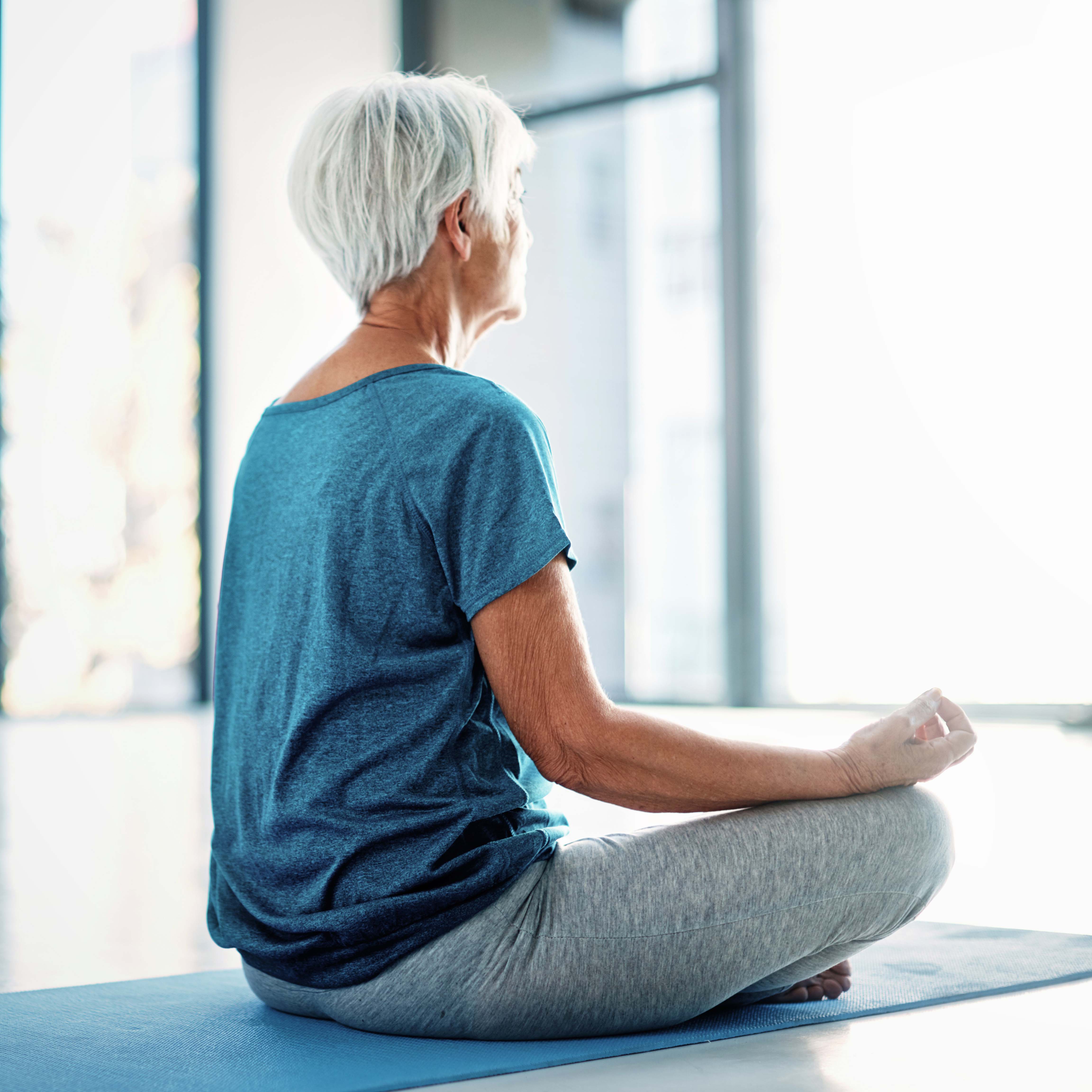 For 29 years, the U.S. has celebrated Senior Health and Fitness Day to raise awareness for the health of senior adults.
For 29 years, the U.S. has celebrated Senior Health and Fitness Day to raise awareness for the health of senior adults.
Senior Health and Fitness Day encourages senior adults to participate in health and wellness events while promoting longevity, chronic disease prevention, and overall well-being.
The Heersink communications team sat down with experts from the Department of Medicine to learn about ways seniors can take and maintain control of their health in several areas of wellness.
Exercise
One significant way seniors can stay well is by engaging in exercise and fitness. When it comes to specific activities, recommendations vary.
However, Thomas Buford, Ph.D., professor in the Division of Gerontology, Geriatrics and Palliative Care and director of the Center for Exercise Medicine, says any movement is beneficial.
“While some health recommendations state 150 minutes per week of moderate to vigorous physical activity (or 10,000 steps per day), significant research states that lower levels—either in duration and/or intensity—can still have significant health benefits for older adults,” he explains.
Buford says the best way to approach exercise is to find an enjoyable activity. “Try to get in as much activity as you can, doing things you enjoy. Incorporate aspects of cardiovascular (i.e., walking, biking), resistance (lifting weights), balance, and stretching.”
“The best exercise regimen is one you enjoy and can stick with.”
TAKEAWAY: Find an enjoyable exercise activity and keep the body moving.
Nutrition
Andrew Duxbury, M.D., professor in the Division of Gerontology, Geriatrics and Palliative Care, has a similar approach to eating as Buford’s recommendation for exercise: don’t overthink it. “In general, older people just need a well-balanced diet like everyone else," he says.
Additionally, Kaitlyn Waugaman, a registered dietitian and program manager in the Division of Preventive Medicine, explains that “a well-balanced eating plan includes fruits, vegetables, whole grains, low-fat or fat-free dairy, and protein.”
In the same way, she says, “choose foods low in saturated fats, trans fat, salt, and added sugar.”
Duxbury notes that older adults can often use more protein in their diet than younger people. “They generally don’t need vitamins or other supplements unless they have specific health conditions,” he explains.
Both Duxbury and Waugaman agree that some adults, especially women, may have increased needs for extra calcium and vitamin D beyond what a typical diet supplies to combat the tendency towards thinning bones and keeping a healthy weight.
TAKEAWAY: Balance is essential. Eat a well-balanced diet with a focus on protein. (And for some, extra calcium and Vitamin D may be beneficial!)
Metabolism
When asked if it’s a fact or myth that metabolism slows down as we age, Duxbury replies, “metabolism does different things in different people as they age. Most older adults do not eat as much at a sitting as younger people do, so they often must eat more snacks to make up for smaller meals.”
Waugaman explains that metabolism can often slow down because of changes in body composition that reduce energy needs.
 So, what can older adults eat or do to keep things moving?
So, what can older adults eat or do to keep things moving?
Waugaman says it’s simple: Eat well. “Eating well can improve the quality of life for older adults. As we age, we should avoid diets or drastic weight loss. We may think diets are the best way to be healthy, but this is not true. Diets, especially ones that eliminate food groups, can lead to nutrition deficits and cause more harm than good!”
Waugaman recommends setting goals for eating all food groups and maintaining a stable weight. If there is a need for weight loss or specific nutrition goals, talk to a registered dietitian nutritionist.
TAKEAWAY: Eat well and avoid fad diets. If weight loss is a challenge, speak to a registered dietitian nutritionist.
Preventing chronic disease
A concern among older adults may include being more susceptible to chronic disease.
Duxbury says that seniors may be more vulnerable to disease because their immune systems are less robust, and they often experience a general decline in physiology and organ capacity.
When asked how older adults can prevent disease, Duxbury says that, while there is no way to 100% prevent possible diseases during aging, there are a few solid routine habits to incorporate for optimal health.
Another way is to “avoid falls and take whatever safety measures are needed to minimize this risk,” he says. “It’s also important to understand medications and have a trusted professional who helps with them and is not afraid to stop medications that may no longer be needed.” Finally, Duxbury recommends acceptance as changes come. “Be prepared to alter your life around those changes,” he guides.
TAKEAWAY: Accept the aging process. Take necessary precautions for safety but keep the body moving when possible.
Mental health
Another common interest among seniors and those approaching retirement age is maintaining healthy cognitive function and memory.
Duxbury explains that research has worked to find the perfect brain exercise to prevent cognitive decline with aging, but no specific magic bullet has been found yet.
However, there are some particular ways to keep the mind and memory healthy when getting older.
“First, we know that the brain in older adults is a ‘use it or lose it’ organ. Individuals who retire from active life to passive activities around the home (often with little stimulation besides the television) are much more likely to develop cognitive decline than those who maintain an interest in problem-solving and learning new things,” he said.
“The best things an aging adult can do to preserve brain function are to keep their brain active with stimulating tasks: reading about new things, attending lectures, solving puzzles, interacting with new people, and looking forward to the new day with intellectual curiosity.
TAKEAWAY: Stay curious. Keep the mind healthy by reading, solving puzzles, socializing, and participating in stimulating activities.
Emotional health
Among many others, one way for older adults to stay healthy emotionally is through relationships and connections.
“Human beings are social animals,” Duxbury says.
“We are designed by nature to live in a mutually supportive group of individuals. Separating ourselves from others tends to increase our stress levels and is, in general, not healthy.”
The COVID-19 pandemic brought forth many negative consequences of isolation, he says.
“Older adults need both the company of other older adults—those who see and understand the world in a similar way to them through shared experience—but also younger people who can keep them active and engaged in the new and keep them learning. In turn, older adults assume their natural role of mentors, storytellers, and keepers of cultural wisdom for the young.”
For seniors who are looking for connection or younger adults who’d like to volunteer, the Birmingham Crisis Center offers a primary service for senior citizens, retirees, and widowed persons to talk with volunteer counselors over the phone on a regular basis. Signing up for the program is easy. Visit Crisis Center Birmingham or call the Crisis Center’s Senior Talk Line at (205) 328-8255 and request to be signed up.
TAKEAWAY: Seek connection and conversation with both senior peers and young adults.
The UAB Heersink School of Medicine’s Division of Gerontology, Geriatrics, and Palliative Care offers several resources for patients including geriatric consults, fall prevention clinics, home-based primary care, and more.